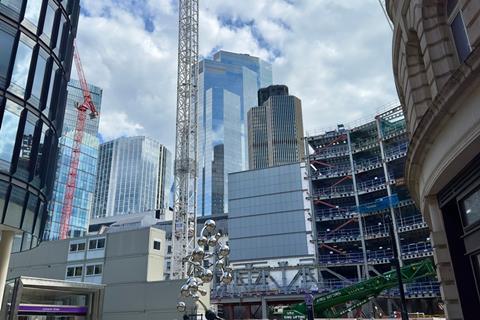Uncertainty ahead of last month’s budget may have contributed to a slowdown in construction output, industry experts have suggested.
Construction output slowed from 0.6% recorded in August to 0.1% in September, according to the latest official figures.

Private commercial new work slumped by more than 20% between July and September compared to the preceding three months
Only four out of nine surveyed sectors grew in September, with the main contributor to the monthly increase being growth of 1.3% in private housing repair and maintenance.
However, the industry outperformed other UK sectors, growing by 0.8% between July and September compared to just 0.1% in the wider economy, which shrank in September.
>> See also: Labour’s tax-and-invest Budget fell flat with the OBR. But is there a brighter story for growth in the built environment?
But total new orders also slumped during the period by 22% compared to the preceding three months, a shortfall valued by the ONS at more than £2.7bn.
The decrease came from a 31.3% fall in private new housing, valued at £861m, and a 20.8% fall in private commercial new work valued at £786m.
Uncertainty over government tax and spending intentions in the months leading up to Labour’s first Budget has been suggested as a contributing factor in the slowdown.
Clive Docwra, managing director of construction consultancy McBains, said investors may have been “holding off on decisions until the picture becomes clearer”.
He also warned some major projects could be pushed back amid fears of higher costs, with an interest rate looking increasingly unlikely due to fears that increased government borrowing announced in the Budget could fan inflation.
“Costs are likely to remain high, putting some major projects out of commission for the time being,”
But he added that clients in many work sectors are “still feeling bullish for the long term, and will be hoping this represents merely a blip in the recent recovery.”
Other experts pointed to the resilience of construction compared to the wider economy. Beard finance director Fraser Johns advised that continued growth would require “continued focus on investing in innovation, developing people, and supporting supply chain partners”.

